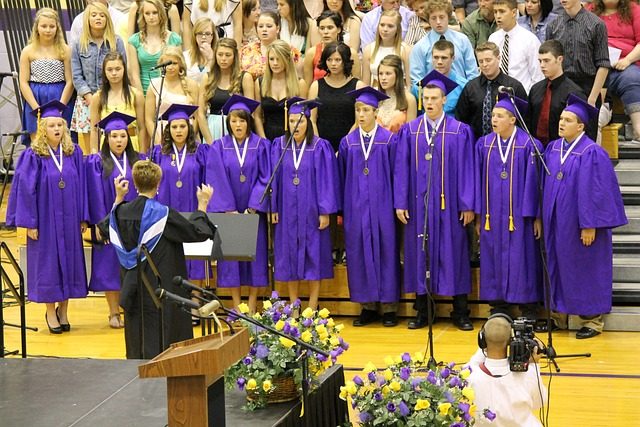If you’re determined to advance your education and career prospects, you may be wondering how to get your Bachelor’s degree quickly. In today’s fast-paced world, many are looking for the quickest route to academic and professional advancement. Luckily, with the right strategies, you can earn your degree in a fraction of the traditional four years.
Whether you’re a first-time college student or returning to school, understanding the accelerated options available can be the key to securing your degree swiftly. Let’s explore the steps and tips to fast-track your education.
Table of Contents
How to Earn a Bachelor’s Degree Fast: A Step-by-Step Guide
The journey to earning a Bachelor’s degree doesn’t have to be a prolonged one. With a step-by-step guide, you can navigate through the process effectively and efficiently.
The first step is to choose an accelerated degree program that aligns with your career goals. Next, consider colleges that offer credit for prior learning or professional experience. Maximize your course load each semester, but ensure it’s manageable. Summer and winter intersession courses can also help you accumulate credits faster.
Additionally, look into online classes, which can offer more flexibility and the possibility to complete coursework more rapidly. Finally, stay organized and focused on your goal. Time management is crucial when attempting to complete your bachelor’s degree quickly.
What Are the Fastest Ways to Complete a Bachelor’s Degree?
Several methods can speed up the journey towards your Bachelor’s degree. Accelerated programs are specifically designed to compress the traditional four years into shorter periods, sometimes allowing completion in two to three years.
Taking extra credits each semester and enrolling in summer and winter sessions can also accelerate your progress. Moreover, some universities offer competency-based education which allows students to progress as they demonstrate mastery of a subject, potentially speeding up degree completion.
Consider taking CLEP exams to test out of subjects you’re already proficient in, thereby earning college credit and saving time. Dual enrollment programs are another option, allowing high school students to take college courses that count towards both their high school and college graduation requirements.
How to Get Your Bachelor’s Degree Online in Less Time?
Online education options have revolutionized the way we think about college. To get your Bachelor’s degree online in less time, research institutions that offer accelerated online bachelor’s degree programs.
These programs typically have multiple start dates throughout the year and shorter terms, which can help you complete your degree faster. Strategies to fast-track your online degree include taking a full course load, including intersession courses, and ensuring that the school offers year-round classes.
Also, seek out programs that offer credit for work or life experience. This could significantly reduce the number of credits you need to graduate. Online learning requires discipline, so be prepared to dedicate time and effort to your studies.
Can You Earn a Bachelor’s Degree in Two Years?
Earning a Bachelor’s degree in just two years is an ambitious goal, but it can be achievable under the right circumstances. If you have existing college credits from previous studies or Advanced Placement (AP) classes, you could apply these towards your degree. Transfer credits can significantly reduce your course load.

Another factor is the availability of accelerated programs that offer intensive coursework. These programs often require a greater time commitment but can lead to a degree in a shorter time frame. Additionally, some schools recognize professional experience, granting credits through portfolio assessments or examinations.
What Are the Best Accelerated Bachelor’s Degree Programs?
When it comes to accelerated programs, it’s essential to choose one that not only allows you to graduate quickly but also offers a quality education that employers respect. Some of the best accelerated programs come from well-established institutions with strong online divisions.
- Business Administration
- Nursing
- Computer Science
- Healthcare Management
These programs often include condensed classes that are completed in shorter terms, such as 8-week courses, allowing for more courses to be taken in a single year.
How to Transfer Credits to Expedite Your Bachelor’s Degree?
Transferring credits can be a strategic way to shorten the path to your Bachelor’s degree. Start by understanding the transfer policies of your target institution. Many schools have articulation agreements with community colleges that make the transfer process smoother.
It’s important to ensure that your credits are from accredited schools and are relevant to your chosen major. Speak with an academic advisor to optimize your transfer credits and avoid taking unnecessary courses.
Additionally, explore options like the College Level Examination Program (CLEP) or DSST exams that allow you to earn credit for what you already know.

What Should You Know About Financial Aid for Quick Degrees?
Financial aid can play a significant role in your educational journey, especially when looking to complete your degree quickly. Fast-track programs can sometimes cost more due to the intensive nature of the coursework.
Research scholarships, grants, and loans that are applicable to accelerated programs. Some institutions may offer special financial aid packages for students in fast-track programs. It’s also a good idea to fill out the Free Application for Federal Student Aid (FAFSA) to see what federal aid you may qualify for.
Before we continue, let’s take a moment to explore a resource that offers valuable insights into the world of accelerated degrees. The following video from BestColleges.com provides actionable advice on navigating the fast track to your Bachelor’s degree:
Frequently Asked Questions on Fast-Tracking Your Bachelor’s Degree
What’s the fastest you can get a bachelor’s?
The fastest you can typically get a bachelor’s degree is within two to three years. This is usually achieved through accelerated degree programs, heavy course loads, and receiving credit for prior learning or experience.
It’s crucial to maintain a balance to ensure the quality of education is not sacrificed for speed. Each program and student’s situation will differ, so it’s essential to explore all available options.
What is the cheapest way to get a bachelor’s degree?
Attending a community college for the first two years and then transferring to a four-year institution can be the cheapest way to earn a bachelor’s degree. Taking advantage of in-state tuition, applying for financial aid, and looking for scholarships can also reduce costs.
Online programs can also be more affordable, eliminating the need for commuting or housing costs. Lastly, earning credits through CLEP exams or prior learning assessments can decrease the number of credits needed, thus reducing tuition fees.
What bachelor’s degree is the hardest to get?
Some of the most challenging bachelor’s degrees are in fields like Engineering, Architecture, Chemistry, Mathematics, and Physics due to the intensive coursework and technical skills required. However, difficulty can be subjective, and what is challenging for one person may not be for another.
What degree takes the most time to get?
Professional degrees like Medicine or Law, which require a bachelor’s degree followed by additional years of study, typically take the longest to obtain. However, in terms of bachelor’s degrees alone, those with rigorous requirements, like Bachelor of Science in Engineering, can take longer if not enrolled in an accelerated program.







